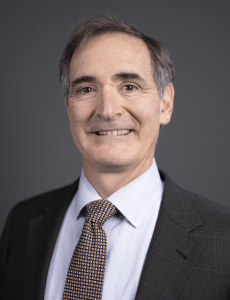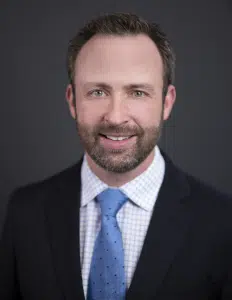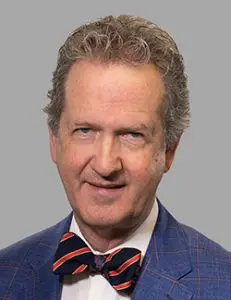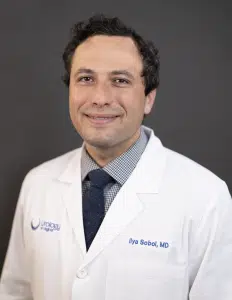What is a urologist?
A urologist has completed a medical degree and then done a residency (about 5 additional years) in the study of disorders of the urinary tract of males and females, as well as the male reproductive system. A urologist can manage non-surgical problems such as the treatment of urinary infections, or the medical management of prostatic enlargement. He or she can also perform urological endoscopy or surgery for the management of kidney stones, urological cancers (e.g., prostate, bladder, kidney, and testicles), incontinence, and more.
Some urologists finish a residency and then do a fellowship, which is an additional 1-2 years of training in a subspecialty of urology. Our group has fellowship-trained experts in urological cancers, reconstructive surgery, female pelvic surgery, and male fertility.
What is Board Certification and why does it matter?
A urologist who has been Board Certified has passed rigorous written and oral examinations from the American Board of Urology (ABU). The ABU acts to ensure the public that certified urologists will provide high quality, safe, efficient, and ethical care to our patients. The urology partners of Urology of Virginia are all Board Certified.
After Certification, we must continue lifelong learning, and maintain our certification through written tests, recommendation of peers, and a detailed review of our surgical activities. We re-certify every 10 years for the duration of our careers!
What is a general urologist?
This is a urologist who has completed his or her residency in urology (about 5 years of additional training after medical school). The general urologist treats common urological conditions, including:
- Urinary Tract Infections
- Prostatitis
- Voiding Dysfunction (Problems passing urine, urinating too often, incontinence)
- Evaluation of Hematuria (blood in the urine)
- Evaluation of the enlarged prostate or elevation of PSA (prostate specific antigen blood test)
- Evaluation of Hypogonadism (low testosterone)
- Kidney stones- treatment and prevention
- Evaluation of a Renal Mass
- Erectile Dysfunction, Premature ejaculation
- Sterilization counseling/Vasectomy
A general urologist will provide medical management or surgical treatments depending upon your problem. When necessary, the general urologist will refer you to a sub-specialist within our group who has additional training and experience to treat more complicated problems.
What are Advanced Practice Providers?
Advanced practice providers (APP’s) include nurse practitioners and/or physician assistants. They are qualified health care professional who work under the supervision of a physician. They have a formal certificate and accreditation by their own licensing bodies, but their scope of practice is more limited than a physician. APP’s can take a medical history, perform a physical exam, order diagnostic testing, and prescribe or perform simple treatments. They can evaluate common conditions and recommend evaluation and management. Most APP’s do not do complicated procedures or surgery but some, with our guidance, develop the skills to perform procedures such as cystoscopy, prostate biopsy, or assisting in the operating room.
We have excellent APP’s that we have trained in the urological care of our office and hospital-based patients. Our APP’s extend our reach, allowing us to accommodate more patients and any emergencies. Medicare and commercial insurance carriers recognize the importance of APP’s and generally cover their services.















